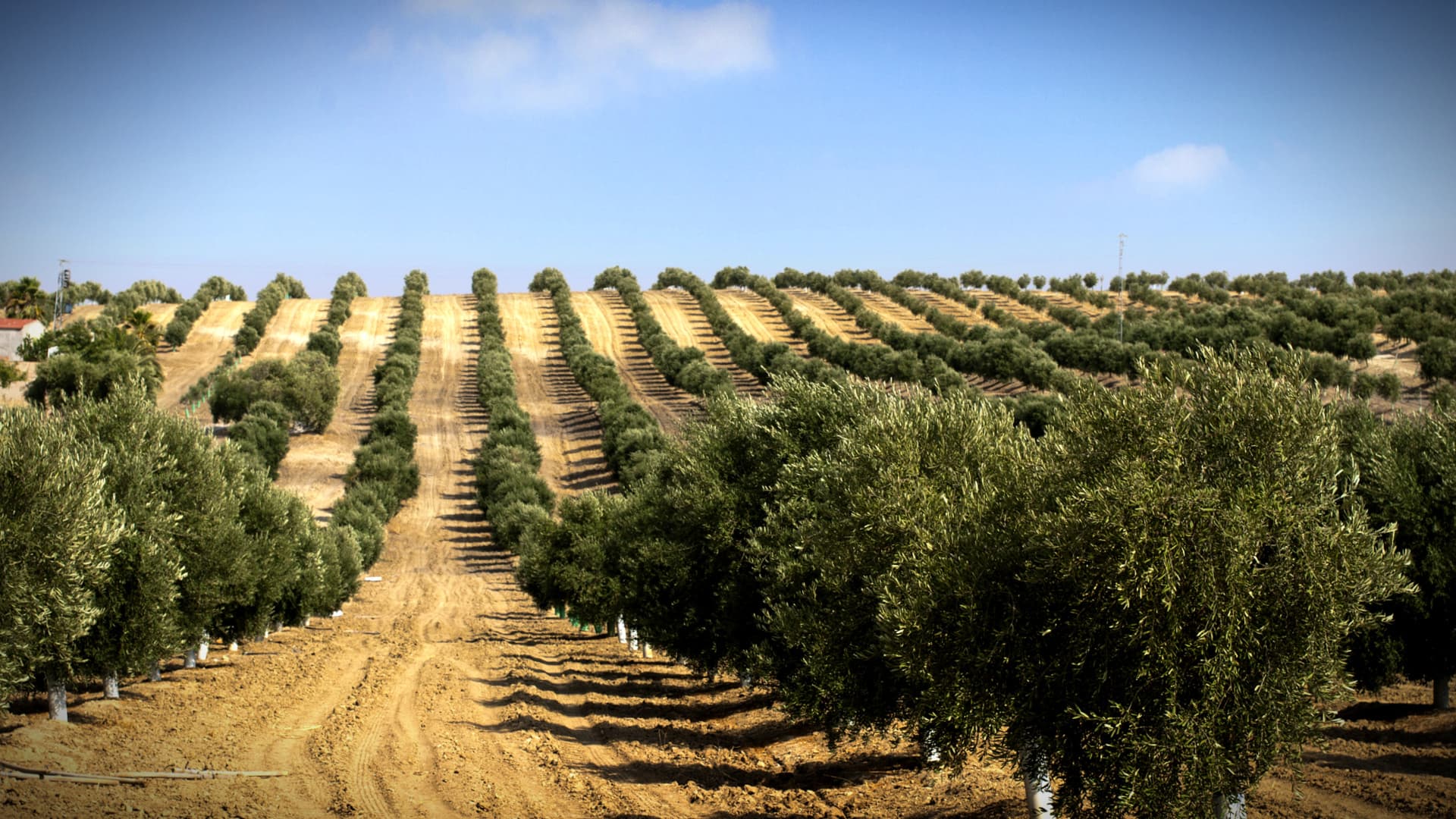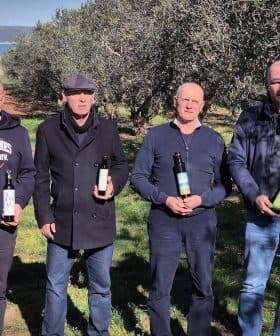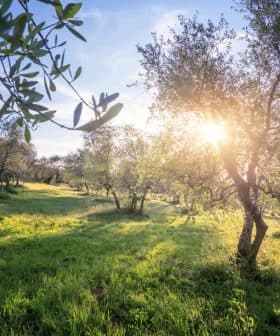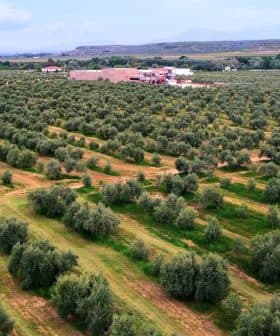 14.4K reads
14.4K readsProduction
One-Third of Global Olive Oil Production Comes from Intensive Farming

Super-high-density groves, which make up 3% of olive-growing hectares, produce 36% of the world’s olive oil and are expected to increase their share. These groves are highly mechanized, efficient in harvesting, and generate significant employment and tax revenue, but there are environmental concerns and differing opinions on their overall impact.
A small fraction of the world’s olive-growing surface produces more than one-third of all olive oil due to the immense yields of super-high-density groves. According to experts, the share of olive oil produced by super-high-density groves is likely to grow.
A report published by the Spanish tree nursery company Agromillora said approximately 3 percent of the olive-growing hectares in the world are super-high-density groves. Still, their yield has grown to 36 percent of the global olive oil production.
Super-high-density groves, also known as hedge olive orchards, comprise about 1,600 olive trees per hectare. Trees are planted approximately one meter apart in rows three to four meters wide. Their management is entirely mechanized.
According to the study by Juan Vilar Strategic Consultants, 11.6 million hectares of olive groves are spread across 66 countries. Of these, 400,000 hectares are super high density.
See Also:Global Olive Oil Production Will Reach 4.4M Tons by 2050, Expert ProjectsAccording to Agromillora, this approach allows greater productivity and lower workforce costs due to the high mechanization, early entry into production and efficient harvesting.
Due to their dependence on water availability and mostly flat landscapes, not all groves can be planted with this approach. Where possible, growers can adopt specific cultivars which have been shown to offer the best results in such an environment, such as Arbosana, Koroneiki or Manzanilla.
According to Agromillora, harvesting a hectare of super-high-density olive trees requires one or two hours at most, with harvesting costs reduced to €0.03 to 0.06 per kilogram of olives.
“This type of harvest allows the olive to be harvested at the correct state of maturation and a quick delivery of the fruits to the mill for transformation, reducing the deterioration that they may suffer and the possible undesirable flavors or aromas in the oil,” the company said.
Employing 44,000 workers remunerated with €90 million per annum, investment in super-high density groves reaches approximately €7 billion, with an average turnover per harvest of around €2 billion, about 15 percent of average global revenues.
The report said super-high-density groves generate about €450 million per annum in terms of tax revenue and investment in the local economy.
The authors said the report’s primary goal is to emphasize how the impact of the super-high density groves is not limited to yields. The report argues that super-high-density groves can also improve sustainability and biodiversity.
“It has been scientifically established that the olive grove in hedgerows is a catalyst of biodiversity as through vegetation cover and the optimization of resources, especially water, it slows erosion,” the report said.
“With its 35,000 hectares planted annually (according to estimates from the three crop years studied), [such orchards are] somehow counteracting, vegetative and gradually, the 420 million hectares of forest that have been lost worldwide since 1990,” it added.
However, not everyone agrees with this conclusion. A 2021 study from the University of Jaén found that traditional olive groves sequester more carbon dioxide than super-high-density groves.
A separate study, also published by the University of Jaén in 2021, concluded that intensive agricultural practices in olive groves usually cause biodiversity loss by exerting intense pressure on plants, birds and insects.
A third study from Spain’s national agency for scientific research (CSIC) linked super-high-density olive cultivation to increased desertification in Andalusia, the world’s largest olive oil-producing region.
Away from the environmental claims and counter-claims, the report also found that super-high-density groves are a significant source of employment in rural areas and also combat food waste.
“Wherever it is possible to transform the olive grove into a hedge, it sets more population in the territory than any other type of olive cultivation, and what settles the people in the territory is wealth,” said Juan Vilar during the presentation of the report at the Fruit Attraction agrifood fair.
Once again, not everyone agrees with this conclusion. Researchers from the University of Jaén told Olive Oil Times that traditional groves create more year-round jobs – though not necessarily better jobs – than super-high-density groves due to the need for manual harvesting and maintenance in traditional groves.
As a case study to illustrate its claims, the report cited the development of super-high-density olive groves in Alentejo, Portugal’s most relevant olive-producing region.
“Alentejo has been an excellent example of the compatibility of an economically profitable culture, which allows creating value in the sector and in the region, with the promotion of environmental and social development indicators,” the report said.
“That is, with a significant impact on carbon sequestration, on the provision of ecosystem services and on population stabilization in the territory,” it added. “After the implementation of these plantations, by campaign, the opportunity for stable and permanent work has been created for more than 700 people.”
“For the first time, the olive oil sector has a competitive tool, the olive grove in hedge, to produce extra virgin olive oil with sustainable costs and to gain relevant market share against other vegetable fats,” the report concluded.









